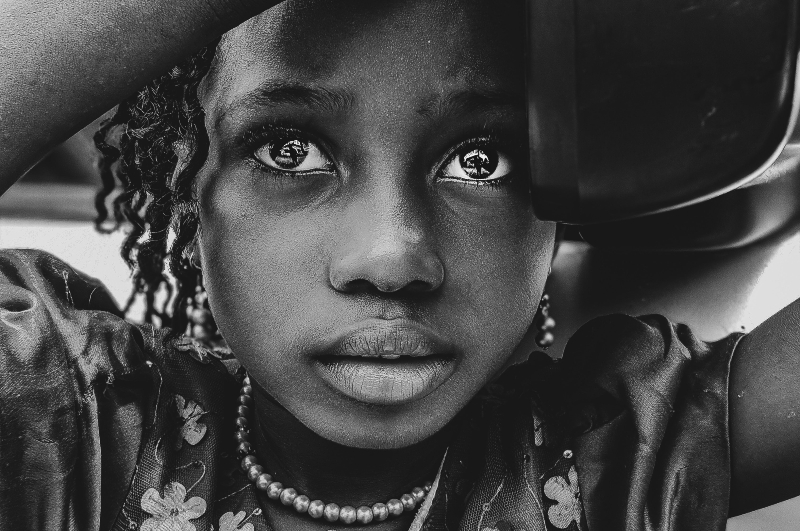

Most African cultures have a harsh way of raising children and do not always distinguish between disciplining the younger members of society and child abuse, a Kenyan child Safeguarding official at the Jesuit Conference of Africa and Madagascar (JCAM) has said.
Beatrice Mumbi, the JCAM Safeguarding Coordinator, told ACI Africa that child abuse in Africa manifests itself in some forms of punishment meted against children.
“Africa has always had a harsh way of raising children and the older people rarely distinguish it from child abuse. In many African countries, abuse of children is taken as discipline,” Ms. Mumbi said in the Thursday, January 13 interview.
According to the Kenyan legal expert who has conducted numerous child safeguarding training sessions across Africa, most child abuses in many African countries go undetected and unaddressed because children rank low in societal hierarchies.
“In Africa, children do not always have a voice and are ranked very low in societal hierarchies. Some people say that children should only speak when spoken to. Others talk of ‘women and children’ to show how the two are given lesser attention in societal ranks,” Ms. Mumbi said and added that children who do not have a voice cannot speak out when they are abused.
The JCAM trainer spoke to ACI Africa ahead of the launch of the Jesuit Centre for Safeguarding in Africa scheduled to take place at the Jesuit’s Nairobi-based Hekima University College on Saturday, January 15.
Ms. Mumbi told ACI Africa that the Safeguarding Centre is inspired by Pope Francis who has expressed the need to protect children from all forms of abuse in his Apostolic Letter issued Motu Proprio on the Protection of Minors and Vulnerable Persons.
The Holy Father states, “We all have the duty to welcome open-heartedly minors and vulnerable persons and to create a safe environment for them, with their interests as a priority.”
He adds in the Apostolic Letter published on 26 March 2019, “The Church loves all her children like a loving mother, but cares for all and protects with a special affection those who are smallest and defenseless. This is the duty that Christ himself entrusted to the entire Christian community.”
The Holy Father notes that there exists a community that is vigilant in preventing any form of physical or psychological violence or abuse, abandonment, neglect, ill-treatment or exploitation that may occur “either in interpersonal relationships or in shared spaces and facilities.”
The JCAM Centre was started in 2018 to equip people working with children in the Church with safeguarding skills.
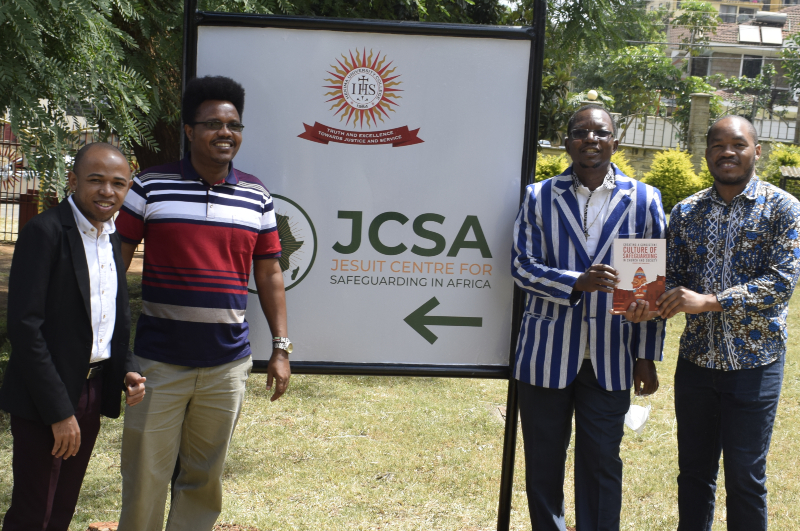
According to Ms. Mumbi, African countries lack instructional materials in equipping Church personnel with child safeguarding skills.
In the interview with ACI Africa, she narrated that the Jesuits Centre for Safeguarding started as an awareness program, sensitizing Novices in the Society of child protection before it evolved into a structured program that admits Seminarians and Religious Sisters from various Congregations and Societies of Apostolic Life.
The Centre, which was opened in August last year now runs an 11-week program for Church personnel who are equipped with child protection skills.
A description of the JCAM training reads, “This training provides the fundamentals of protecting children from violence, exploitation, abuse and neglect and keeping them from harm following an interdisciplinary approach encompassing law, psychology, anthropology, sociology and theology.”
The academic course is delivered in 10 sessions and covers culture, theological foundations of safeguarding children and vulnerable adults, legal frameworks, practical safeguarding and specific child protection issues. Other topics include actors in child protection and systems approach.
The leadership of the JCAM Centre notes that non-academic training will also be organized for groups on request, both online and in-person once the COVID-19 situation allows for such.
The Centre’s inaugural class will be awarded certificates at the January 15 launch. A book, “Creating a Consistent Culture of Safeguarding in Church and Society: Perspectives from Africa” edited by Beatrice Mumbi and Lawrence Daka will also be launched.
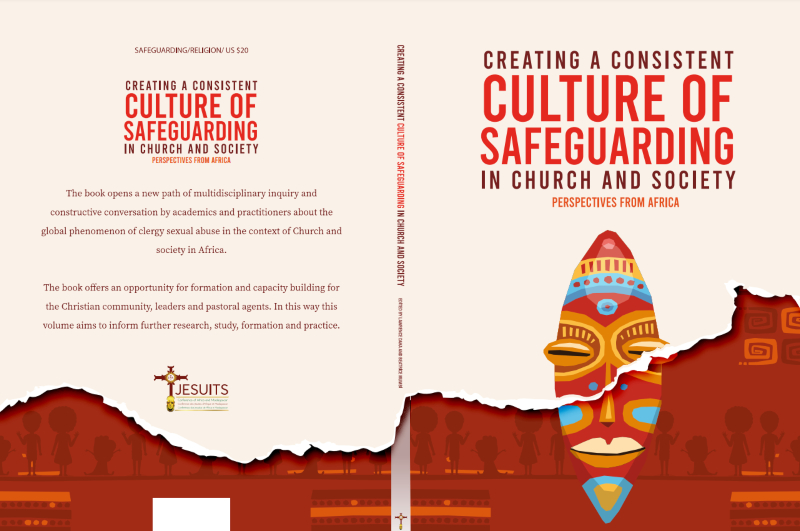
The launch of the Centre is aimed at expanding reach across Africa to provide training that is tailored according to the needs of the people of God on the continent.
Highlighting the gaps that have existed for long in terms of child safeguarding training in Africa, Ms. Mumbi told ACI Africa, “I haven’t seen any other Centre that offers safeguarding training in Africa. For a long time, people took online classes at an institution in Ireland. But the institution was shut down.”
She added that training materials in child safeguarding have also not been corresponding to the realities of abuse on the continent.
“For a long time, people have been using training materials that are developed outside Africa. The examples given in those resources are from Europe and other places that Africans do not relate with,” the child safeguarding official said, and added, “At JCAM, we have done comprehensive studies on how abuse manifests itself in various countries and what can be done to tame it.”
The JCAM Safeguarding training examines how culture contributes to abuse in various African countries, especially countries that do not have strong governance structures.
“Sexual abuse of children is especially rampant in South Sudan because the country does not have a strong government. Other African countries that do not have strong governance structures can also be characterized with abuse of children,” Ms. Mumbi said.
She added, “I went to a school in South Sudan and found that only five out of 30 pupils in the school’s uppermost class were female. The rest were male. Additionally, all the female students in that class said they were mothers. Most of them were married and they narrated that their husbands escorted them to school every morning.”
The JCAM official who has worked at the Jesuit Refugee Service (JRS) as the Regional Advocacy Officer in charge of five African countries said that the Church has a lot to do in African countries that have strong “retrogressive” cultural practices.
“It is important for the masses to be taught to distinguish the positive cultural practices from the retrogressive ones. There is a need to enhance the positives and to slowly stamp out retrogressive practices that do not value children,” she said.
The official acknowledged that culture in Africa always dictated that children, especially vulnerable ones, be protected.
“When parents died, the extended family took up the responsibility of taking care of the orphans. By the end of the burial ceremony, each orphaned child knew the exact relative they would be staying with. With this arrangement, we didn’t have many destitute children. These are some of the African values that we need to promote,” Ms. Mumbi said.
She noted that with urbanization and the high cost of living, families now overlook the responsibility of taking in orphans, hence the growth in the number of street children, child labour and many other forms of child abuse.
The official who also directed a Safeguarding Program for St. Patrick’s Missionary Society for three years before joining JCAM where she has worked for two years noted that the Church is the place where traumatized children find a safe place.
Unfortunately, according to Ms. Mumbi, religion has also been used as a tool for abuse.
“Abuse sometimes happens during Catechism and other children’s programs in the Church,” she says, and narrates, “My daughter attended Catechism where the teacher was always using harsh language on the children, ever instilling fear in them. I had a chat with the teacher and he understood that such language was abuse to the children.”
Novices and those starting their formation in Seminaries also undergo what Ms. Mumbi referred to as “spiritual abuse”.
“I have seen situations where faith is used to manipulate or to take advantage of someone. This is spiritual abuse. Here, the young people are threatened with the fear of hell,” she said, and explained, “Novices, young people in formation undergo spiritual abuse. It starts gently until they become completely brainwashed.”
“I heard of a Religious Sister who, when she wanted to leave her Congregation, she was told that she wouldn’t be anything outside Religious Life. Though she eventually left, it took her many years to believe that she was a worthy human being,” Ms. Mumbi said, and added, “Cases of women who are told to sleep with their Pastors to receive some sort of spiritual favour are also common.”
She says that since people with religious statuses are highly respected, it is easy for the faithful to be blind to the fact that Church leaders can also be perpetrators of abuse.
According to the Kenyan child safeguarding official, the Church should be the place where children and other vulnerable people who have undergone abuse find healing.
“The Church should be free of abuse. It should be a safe space for children who have undergone various kinds of abuse and traumas,” the JCAM Safeguarding Coordinator told ACI Africa January 13.
She added, “People working in the Church should be well equipped to be able to identify abuse and help victims through the healing process.”
Republished from ACI Africa.
Related Articles
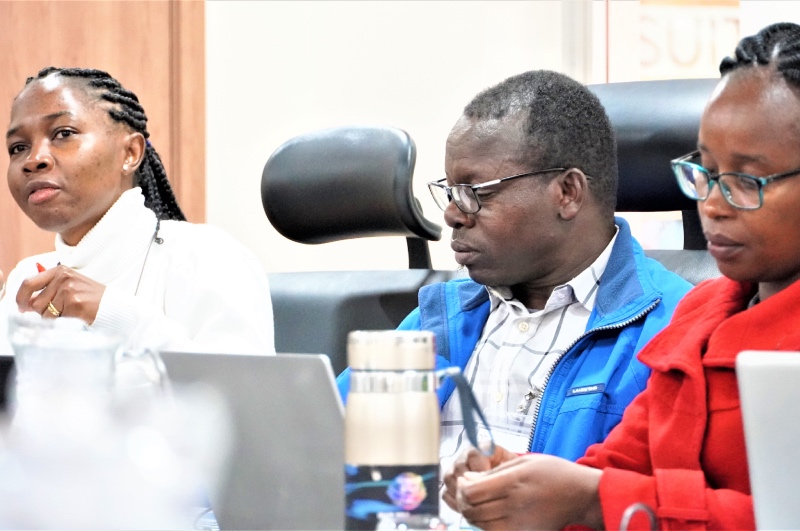

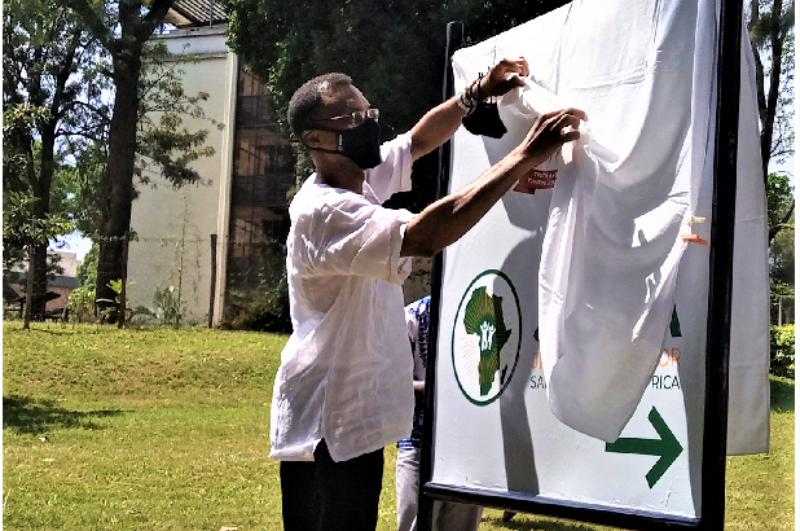

Select Payment Method
Pay by bank transfer
If you wish to make a donation by direct bank transfer please contact Fr Paul Hamill SJ treasurer@jesuits.africa. Fr Paul will get in touch with you about the best method of transfer for you and share account details with you. Donations can be one-off gifts or of any frequency; for example, you might wish to become a regular monthly donor of small amounts; that sort of reliable income can allow for very welcome forward planning in the development of the Society’s works in Africa and Madagascar.
Often it is easier to send a donation to an office within your own country and Fr Paul can advise on how that might be done. In some countries this kind of giving can also be recognised for tax relief and the necessary receipts will be issued.


